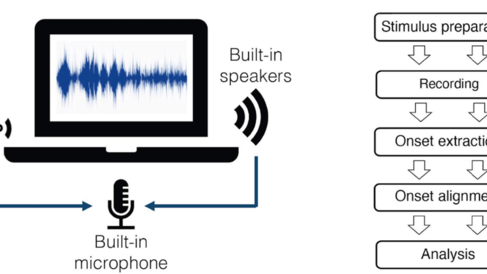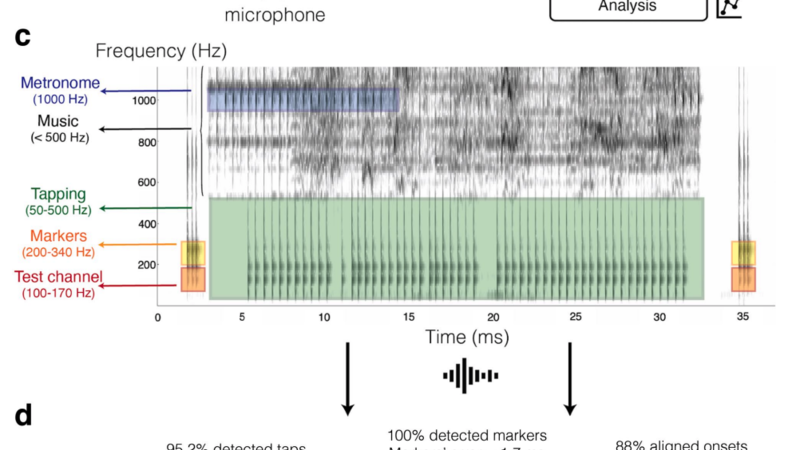
We are happy to share our new publication, 'REPP: A robust cross-platform solution for online sensorimotor synchronization experiments', a project led by researchers at the Max Planck Institute for Empirical Aesthetics and the Centre for Music and Science (Manuel Anglada-Tort; Peter Harrison; Nori Jacoby). REPP (Rhythm ExPeriment Platform) is a new technology that enables psychologists to run high-precision sensorimotor synchronisation studies (e.g. tapping to the beat in a piece of music) through the web browser. Traditionally such experiments could only be run effectively using specialist hardware in the laboratory; by making such experiments viable online, we make it possible to collect data from hundreds or even thousands of participants in the space of a few hours. We see this as part of a wider agenda of building sophisticated virtual laboratories for music psychology, capable of reproducing complex data-capture paradigms (e.g. tapping, singing) online, that allow us to run high-powered psychological studies with participants from all over the world.
The REPP technology is based on a simple observation: while the keyboards in standard computers only capture button presses with limited temporal accuracy, their microphones capture audio information with orders of magnitude higher precision. REPP leverages this high precision by having participants tap the physical case of their laptop, and recording the resulting sound. Simultaneously, REPP records the sound of the concurrent stimulus (e.g. the piece of music) that is being played to the participant, and uses a highly optimised signal-processing pipeline to express the locations of the recorded taps relative to the audio stimulus. We show through a series of validation experiments that REPP achieves high temporal accuracy (latency and jitter within 2 ms on average), high test-retest reliability both in the laboratory (r = .87) and online (r = .80), and high concurrent validity (r = .94). We are excited to use this technology to run a range of sophisticated behavioural studies investigating the special human capacity to entrain to music.
Paper: Anglada-Tort, M., Harrison, P. M. C., & Jacoby, N. (2021). REPP: A robust cross-platform solution for online sensorimotor synchronization experiments. Behavior Research Methods. https://doi.org/10.3758/s13428-021-01722-2
Software and documentation: https://gitlab.com/computational-audition/repp
Data: https://osf.io/r2pxd/
Summary figure (Anglada-Tort et al., 2021; CC BY 4.0; reproduced unaltered):

REPP: A robust cross-platform solution for online SMS experiments.(a) REPP uses a free-field recording approach that can work efficiently using standard hardware and software available to most online participants. (b) REPP comprises five main steps. (c) Example of a recording using REPP in a trial of beat synchronization to music. REPP uses a unique frequency range for each audio element in the recording: metronome (blue), tapping (green), markers (yellow), and test channel (red). (d) Output of the performance analysis after the signal processing steps, including the number of detected tapping onsets, detected markers, and mean and SD of asynchrony.
